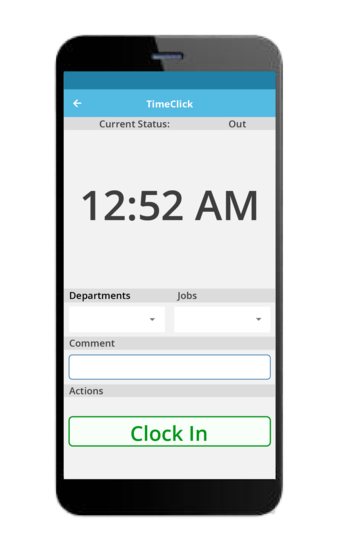Nearly 60 years have passed since Dr. Martin Luther King Jr. delivered lasting words that would shape and influence a nation forever. His dream and legacy live on, spurred by the ongoing fight for diversity, equity, and inclusion.
The onset of 2022 follows a tumultuous series of events ranging from an evolving pandemic, heightened racial conflicts, and more. Americans have thus find themselves reprioritizing work, including other things, more than ever before.
Employee engagement thus involves much more urgent of a conversation than years prior. Today, we will explore one facet crucial to improving employee engagement: diversity, equity, and inclusion (DEI).
History of Diversity, Equity, and Inclusion
DEI efforts and programs arose following the passage of equal employment and affirmative action laws in the 1960s. Many of the earliest, and even more recent, DEI policies implemented involved a segment of new employee training that centered on dos and don’ts of the workplace.
The general goal for diversity, equity, and inclusion has remained the same across the board: integrate people of varying backgrounds into the workforce while managing and reducing social/racial tensions.
Unfortunately, this method otherwise known as bias-focused training yielded poor results. A 2019 Harvard Business Review study found that this type of DEI policy had little to no effect on employees who held more power within an organization.

Rather than bias-focused training, other companies opted for hiring tests. These tests sought to eliminate socioeconomic or racial background from hiring decisions by limiting the information provided to hiring managers.
This approach quickly received negative pushback as well from frustrated hiring managers who wanted more information on candidates for a position.
Benefits of an Effective DEI Approach
Small business owners and Fortune 500 CEOs should not have to look hard to see the benefits of an effective approach to diversity, equity, and inclusion. If you don’t have one, you need to get one.
First and foremost, diversity, equity, and inclusion can directly cause an employee to stay or leave. Inc. Magazine reports the manager as the #1 reason people quit their jobs in America.
Look beyond the fact that DEI and manager/employee conflicts don’t seem related. Why would an employee quit because of a manager?
More often, the problem centers on communication problems. Even if you could see a manager/employee conflict without a definitive perpetrator, most conflicts involve a breakdown or misunderstanding in communication.
Diversity, equity, and inclusion at its core involves and facilitates a positive environment founded upon open and equal communication.

This isn’t the only reason. Let’s look at a few others:
Improved Talent Pool
In a nut shell, DEI allows you to select from a larger group of candidates. This means more people, more interviews, and thus a higher chance of finding the right person for the right job.
Genuine Customer Interactions
Commitments to diversity, equity, and inclusion go a long way to make a powerful statement on your behalf. By demonstrably upholding DEI principles, you can attract new customer segments that you previously may not have attracted.
Augmented Company Progress
True and genuine diversity, equity, and inclusion practices can facilitate an environment where each employee feels welcome to share ideas. In the increasingly rapid pace of change in today’s market, business need to be able to demonstrate progress or risk falling hopelessly behind.
Simplify Time Tracking with TimeClick!
Download our free trial—simple, secure, offline tracking, no fluff.

How To Approach Diversity, Equity, and Inclusion
At least until now, we have not found a definitive DEI practice that every company should universally follow. As with the larger topic of employee engagement, there doesn’t seem to be one best way to uphold diversity, equity, and inclusion.
Fair and Honest Communication
One fundamental piece remains the same across the board: open, genuine communication.
See, as business owners and market leaders, we seek to hire professionals and not just the first person we see walking on the street. On a very basic level, we need to communicate and treat our employees just like that: professionals.

Problems arise when we treat people as something other than what we hired them for. Think about it.
You may not agree with an employee’s political, social, economic, or religious perspectives. Did you hire them for that reason? Chances are, you did not.
You hired the employee to fill a role, so you should keep your workplace conversations and correspondence to work-related matters.
This situation can morph and change with employees and bosses that have friendships and relationships outside of work. The key point to maintaining a neutral and equal work environment centers on compartmentalizing the communication among you and your team.
Fair and Honest Hiring/Advancement Practices
This point ties in with the previous point. You absolutely cannot base the decision to hire, fire, promote, demote, or bypass an employee on anything other than factors that directly pertain to work.
Again, you may vehemently disagree with an employee’s stance on a matter of great significance to you. If that matter does not involve the employee’s job performance, tenure, attendance, and team synergy, you cannot touch it.
The last thing you want is to involve a personal matter into a business decision. Doing so, at the very least, can cost you a good employee and at the very worst can cost you your company.
Fair and Honest Compensation Practices
The Department of Labor reports a disheartening fact – people of different races and sexes still do not earn the same wages. Across the United States, black workers on average earn of 75% of the average income of white workers. Native Americans/American Indians earn about 76% of what white workers make and Hispanics/Latinos only 72%.
Political and economic perspectives aside, the bottom line remains. All members of your team deserve to make wages and earn promotions on a basis of their work, not of their race or sex.
If you feel discomfort when thinking about publicly posting everyone’s salaries, think about why you feel the way you do. If you cannot provide a logical and equitable explanation for the differences in employees’ salaries, you may need to revisit your compensation practices.
Survey Your Team
No two people have the exact same personality and dispositions. Knowing this, you may find an effective DEI approach after a conversation with your team members.
In this way, it can be as simple as asking and talking to your employees to see what they think would help. After all, the issue is named “employee engagement.”
Such a conversation can yield surprising results. You may find that employees actually find something not to be as bad of a problem and bring up an issue you were previously unaware of.
Conclusion
Martin Luther King Jr. Day accompanies the turn of a new year following a series of difficult challenges for people all across the world. In a world filled with people of countless different backgrounds, Dr. King's words still resonate to this day.
True diversity, equity, and inclusion can come to life in honor of his legacy and of each other's individuality.
As a result, DEI policies with a black-and-white approach rarely yield positive results. The examples we have of companies seeing success with DEI can attest to this.
At the bottom line, diversity, equity, and inclusion in the workplace start with genuine conversations and end with the acceptance of one another's differences.
TimeClick Embraces Diversity
As a small team with team members from different states, ethnicities and backgrounds, we at TimeClick embrace the importance of diversity, equity, and inclusion.
This principle lies at the center of our product which we strive to make as customizable as possible. We know our readers and clients come from a huge range of industries and backgrounds, all with unique needs.
TimeClick takes employee time tracking and makes it a process that’s personal to your organization.
Do you manage a wide variety of teams across departments? Does your company provide PTO benefits? Do you have salaried employees that track their hours?
Get these and countless other questions answered and reach out to us. We’re available by phone at (435) 753-4102, by email at sales@timeclick.com and by chat at timeclick.com.
Ready to streamline your employee time tracking, boost productivity, and simplify payroll? Sign up for your FREE 14-day trial today and see how TimeClick can transform your business!
Start your FREE TimeClick Trial Today.

